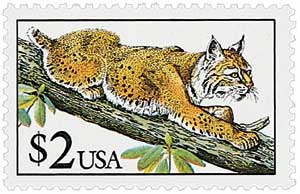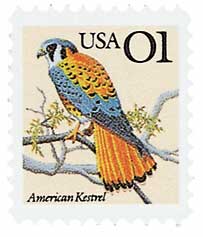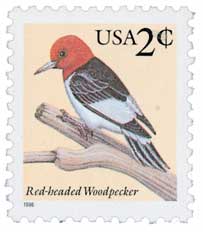
# 3493-94 FDC - 2001 34c Apple and Orange, self-adhesive booklet stamps
Apples and Oranges
Booklet
Printed by: Banknote Corporation of America
Printing Method: Lithographed
Perforations: Serpentine die cut 11 ½ x 10 ¾
Color: Multicolored
Flora And Fauna Series
The Flora and Fauna series was born from plans for a Priority Mail stamp in 1987. At the time, the USPS was considering what to feature on their new Priority Mail stamp. Express Mail stamps at the time pictured eagles, so they thought Priority stamps could picture fast land animals.
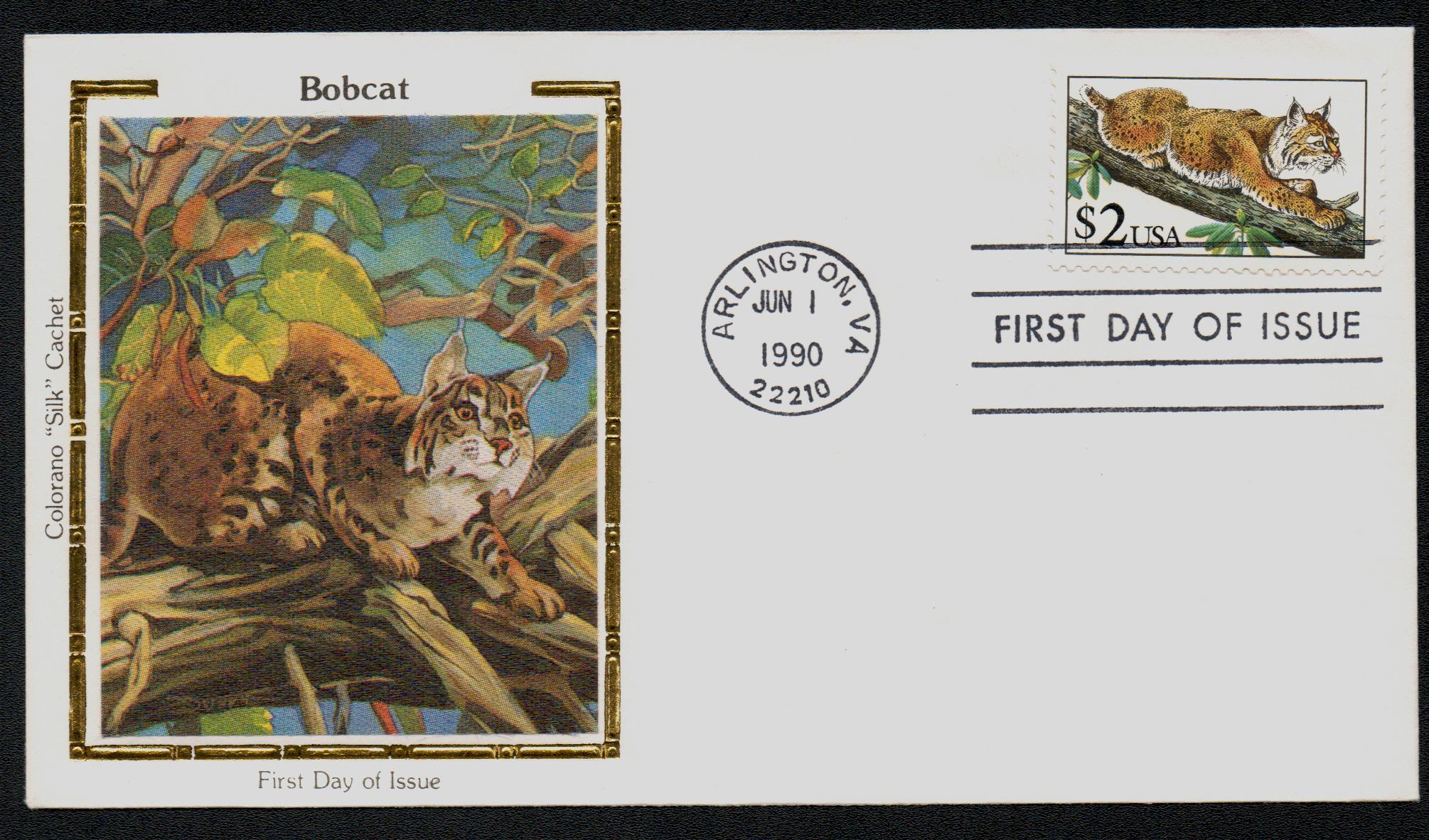
The USPS then tasked three artists with providing some wildlife artwork for consideration. However, they didn’t act on the artwork and filed it away. The following year, the USPS did use one of the pieces, a pheasant painting by Chuck Ripper, for a stamp needed for the new 25¢ first-class rate.
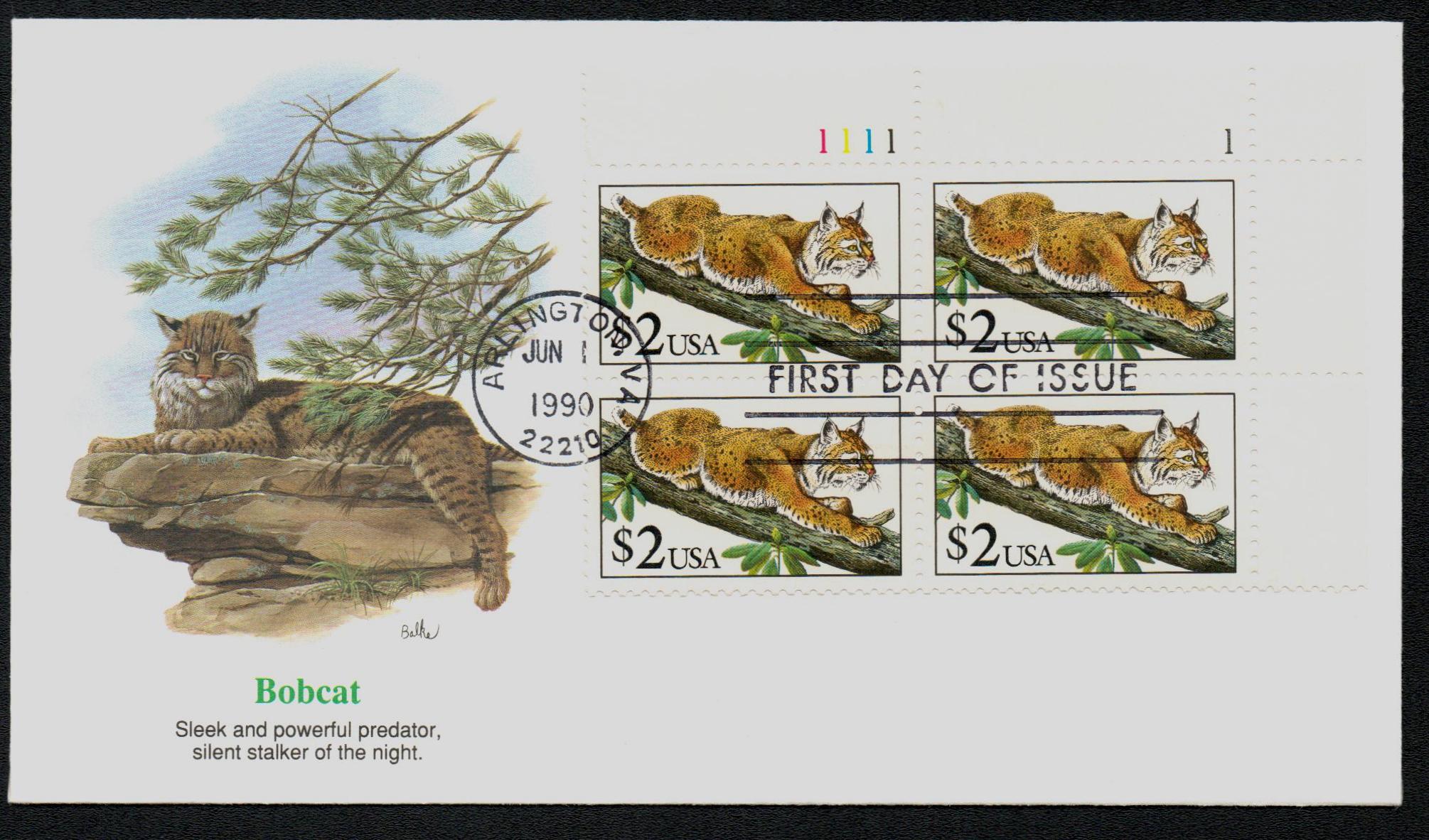
By 1990, the USPS was ready to replace the Great Americans series, which had begun in 1980. Early in the year, there was an urgent need for $2 stamps, as their stocks of $2 William Jennings Bryan stamps was depleted about six weeks before the new stamp was issued. The USPS chose another of Chuck Ripper’s paintings, of a bobcat, to grace the new $2 stamp.
One thing the USPS knew they wanted to do with the new series was place the higher values on larger sized stamps, to help postal workers more easily distinguish $1, $2, and $5 stamps from 1¢, 2¢, and 5¢ stamps. They considered using the special-issue size used for Christmas and Love stamps but ultimately decided to go with the regular commemorative size “to give the collector and the user of these stamps more for their money” according to one USPS official.
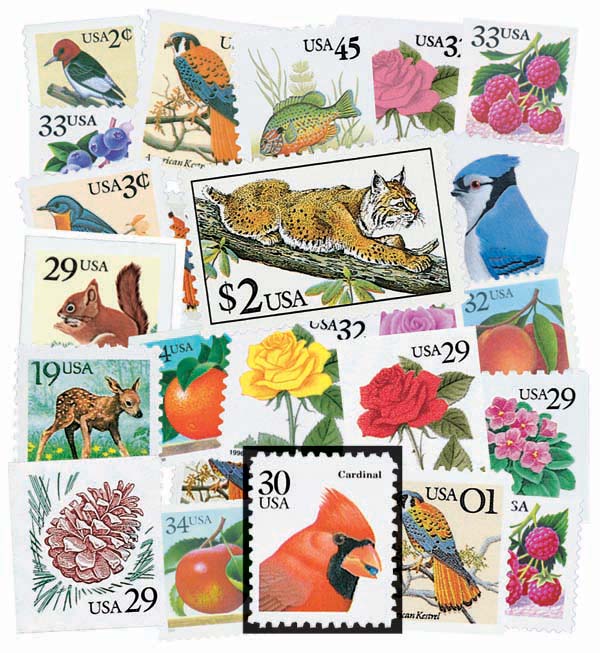
The $2 bobcat stamp that began the new series was issued on June 1, 1990, at the opening of NAPEX 90, the show of the National Philatelic Exhibitions of Washington, DC, held in Arlington, Virginia. The president of NAPEX 90, as well as a naturalist from the National Wildlife Federation, were among those that addressed the crowd. During the ceremony, a postal official said, “This is the first issue planned in the conversion of high-value sheet stamps from the Great Americans series to the colorful, commemorative-size Wildlife series. The $2 Bobcat stamp is a regular issue and will remain in use for a number of years. Eventually, the format of the $1 and $5 regular issues will follow in the tracks of the Bobcat stamp.”
Similar to the $5 Bret Harte stamp, the $2 bobcat was issued in a mini-sheet of 20. The selvage including the words “American Wildlife” and “Bobcat (Lynx rufus),” though the animal wasn’t identified by name on the stamp.
In 1991, lower-value definitives were needed, and the USPS made a break with tradition. Going forward, all values less than 10¢ would have a zero before them and no cents sign. However, in 1995, they reversed that decision, and went back to using a cents sign without the leading zero.
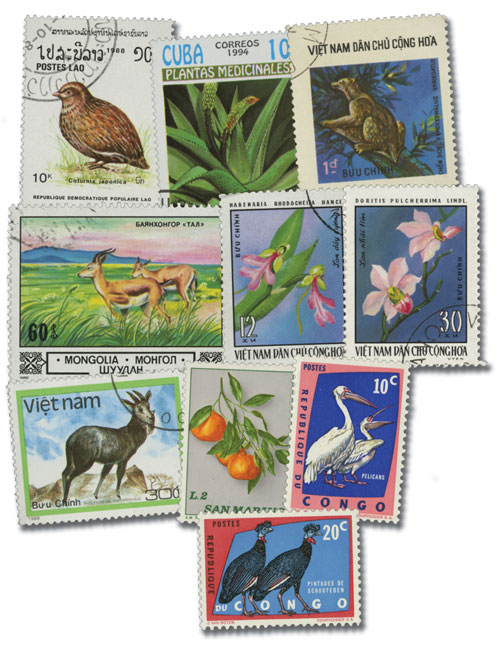
For most of the series’ life, it was referred to as the Wildlife Series. Then with the issue of the 2¢ Red-Headed Woodpecker on June 22, 1999, the USPS began calling it the Flora and Fauna Series. Over the course of the series, there were 36 face-different stamps (55 in all) that pictured a wide variety of flora and fauna. The flora included flowers, berries, fruit and a pinecone, while the fauna consisted mostly of birds as well as a fawn, squirrel, honeybee, fox, and sunfish. The tulip stamps used the rate-change F denomination. These stamps were issued in a variety of formats – sheets, booklets, coils – and as perforated with water-activated gum or with straight edges or serpentine die cuts with self-adhesive gum.
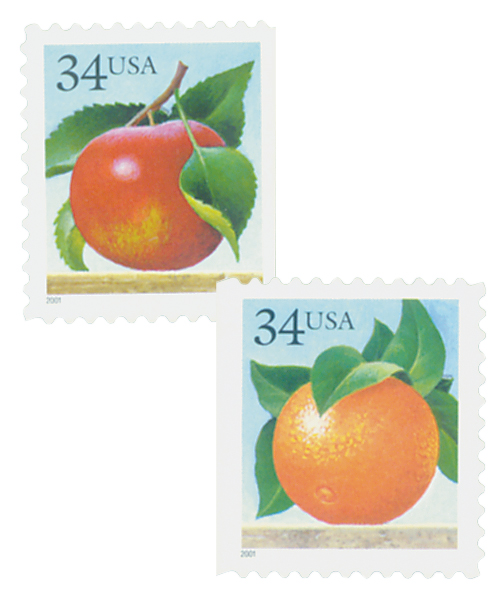
The first Distinguished Americans stamps were issued to replace this series in 2000, and the final Flora and Fauna stamps were issued in May 2001.
Click here to get the individual Flora and Fauna stamps you need.
Apples and Oranges
Booklet
Printed by: Banknote Corporation of America
Printing Method: Lithographed
Perforations: Serpentine die cut 11 ½ x 10 ¾
Color: Multicolored
Flora And Fauna Series
The Flora and Fauna series was born from plans for a Priority Mail stamp in 1987. At the time, the USPS was considering what to feature on their new Priority Mail stamp. Express Mail stamps at the time pictured eagles, so they thought Priority stamps could picture fast land animals.

The USPS then tasked three artists with providing some wildlife artwork for consideration. However, they didn’t act on the artwork and filed it away. The following year, the USPS did use one of the pieces, a pheasant painting by Chuck Ripper, for a stamp needed for the new 25¢ first-class rate.

By 1990, the USPS was ready to replace the Great Americans series, which had begun in 1980. Early in the year, there was an urgent need for $2 stamps, as their stocks of $2 William Jennings Bryan stamps was depleted about six weeks before the new stamp was issued. The USPS chose another of Chuck Ripper’s paintings, of a bobcat, to grace the new $2 stamp.
One thing the USPS knew they wanted to do with the new series was place the higher values on larger sized stamps, to help postal workers more easily distinguish $1, $2, and $5 stamps from 1¢, 2¢, and 5¢ stamps. They considered using the special-issue size used for Christmas and Love stamps but ultimately decided to go with the regular commemorative size “to give the collector and the user of these stamps more for their money” according to one USPS official.

The $2 bobcat stamp that began the new series was issued on June 1, 1990, at the opening of NAPEX 90, the show of the National Philatelic Exhibitions of Washington, DC, held in Arlington, Virginia. The president of NAPEX 90, as well as a naturalist from the National Wildlife Federation, were among those that addressed the crowd. During the ceremony, a postal official said, “This is the first issue planned in the conversion of high-value sheet stamps from the Great Americans series to the colorful, commemorative-size Wildlife series. The $2 Bobcat stamp is a regular issue and will remain in use for a number of years. Eventually, the format of the $1 and $5 regular issues will follow in the tracks of the Bobcat stamp.”
Similar to the $5 Bret Harte stamp, the $2 bobcat was issued in a mini-sheet of 20. The selvage including the words “American Wildlife” and “Bobcat (Lynx rufus),” though the animal wasn’t identified by name on the stamp.
In 1991, lower-value definitives were needed, and the USPS made a break with tradition. Going forward, all values less than 10¢ would have a zero before them and no cents sign. However, in 1995, they reversed that decision, and went back to using a cents sign without the leading zero.

For most of the series’ life, it was referred to as the Wildlife Series. Then with the issue of the 2¢ Red-Headed Woodpecker on June 22, 1999, the USPS began calling it the Flora and Fauna Series. Over the course of the series, there were 36 face-different stamps (55 in all) that pictured a wide variety of flora and fauna. The flora included flowers, berries, fruit and a pinecone, while the fauna consisted mostly of birds as well as a fawn, squirrel, honeybee, fox, and sunfish. The tulip stamps used the rate-change F denomination. These stamps were issued in a variety of formats – sheets, booklets, coils – and as perforated with water-activated gum or with straight edges or serpentine die cuts with self-adhesive gum.

The first Distinguished Americans stamps were issued to replace this series in 2000, and the final Flora and Fauna stamps were issued in May 2001.
Click here to get the individual Flora and Fauna stamps you need.

















